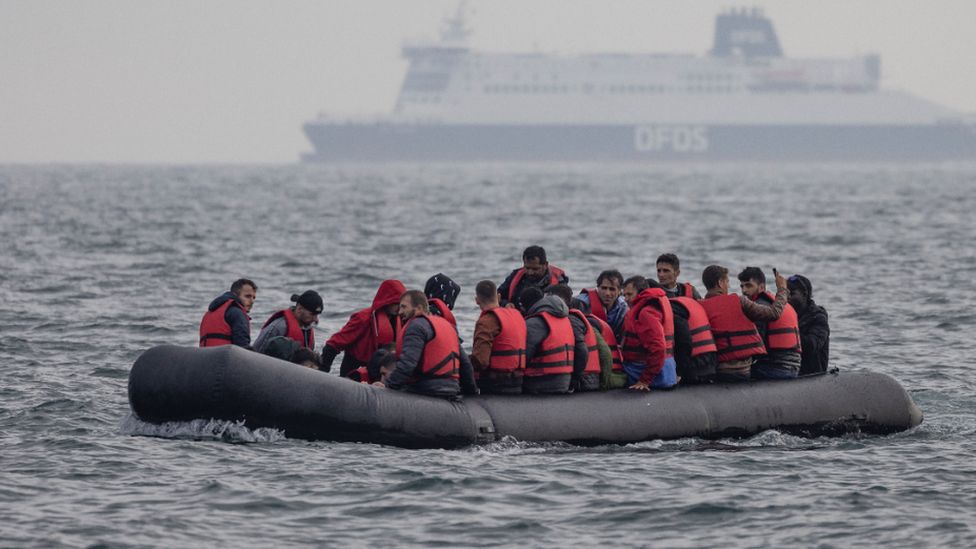
By Sam Hancock & Sam Francis
BBC News
The Illegal Migration Bill is set to become law after the government won a final series of votes in the Lords.
The legislation is central to the prime minister’s pledge to stop small boats crossing the English Channel.
Under the bill, the home secretary has a legal duty to detain and remove anyone entering the UK illegally.
In a late-night debate in the House of Lords, peers rejected attempts to reinsert time limits on child detention and modern slavery protections.
The bill will now go for royal assent and become law.
As it stands it is unclear what will happen to people coming to the UK on small boats in the coming months, according to BBC Home Affairs Correspondent Dominic Casciani.
The bill places a legal duty on the government to detain and remove those arriving in the UK illegally, either to Rwanda or another “safe” third country. But there are no similar return deals with any other countries, our correspondent said.
And the Rwanda plan was ruled unlawful by the Court of Appeal last month, although ministers are challenging the judgement.
Parliamentary ping-pong
For weeks, the government was locked in a battle over the final shape of the bill with the Lords, where a cross-party group of peers made repeated amendments.
In the last few days, the bill passed between the House of Commons and House of Lords three times, in a process known as parliamentary ping-pong.
One such amendment would have ensured that the National Crime Agency gave reports on immigration crime operations every three months.
Peers voted to reject that by 201 peers to 166 on Monday, with a majority of 35.
Another – to provide safeguards to UK-based victims of modern slavery – was rejected by 205 to 193.
It called for a 14-day grace period, allowing people to access support and co-operate with criminal proceedings against traffickers.
The Archbishop of Canterbury Justin Welby, who has been a critic of the bill, dropped his demand for the government to draw up a 10-year strategy for collaborating internationally on refugees and human trafficking to the UK, after it was again rejected by MPs.
Watch: Braverman “disappointed” with Rwanda ruling
The end of the stand-off between peers and MPs paves the way for the bill to receive royal assent – when the King formally agrees to make the bill into an Act of Parliament, or law.
During the Lords debate, Home Office minister Lord Murray of Blidworth said the number of small boat arrivals had “overwhelmed” the UK’s asylum system and that accommodation was costing taxpayers £6m per day.
“With over 45,000 people making dangerous Channel crossings last year this is simply no longer sustainable,” he told peers, adding it was “only right” that the “business model” of human traffickers be broken.
He urged the Lords to “respect the will of the elected House and the British people by passing this bill”.
Before the debate, shadow immigration minister Stephen Kinnock said the bill was “unworkable” and an exercise in “performative cruelty”.
He added that Rwanda would only be able to take a tiny fraction of the migrants arriving in small boats, meaning the threat of being deported there would not deter people from making the journey.








